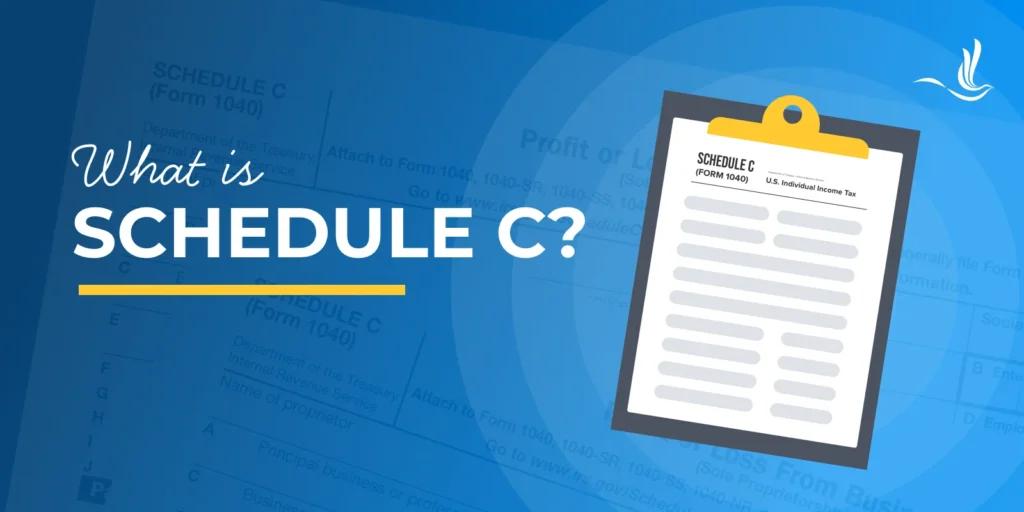
For small business owners, figuring out taxes can often be complicated. Among the many forms and documents required by the IRS, Schedule C stands out as a vital component for sole proprietors and single-member LLCs. It’s the key to reporting income and expenses for your business, ultimately determining your taxable profit or loss. In this guide, we’ll explore the ins and outs of Schedule C, helping you comprehend its importance and how to fill it out accurately.
What is Schedule C?
Schedule C is officially titled “Profit or Loss from Business.” It’s an IRS form attached to Form 1040 that’s used by sole proprietors, freelancers, independent contractors, and single-member LLCs to report their business income and expenses. This crucial document calculates the net profit or loss of your business, which then factors into your overall tax return.
Who Needs to File Schedule C?
If you’re self-employed and operate as a sole proprietor or a single-member LLC, you’ll likely need to file Schedule C. This includes individuals who earn income from freelance work, consulting, or any other business activity where they’re not treated as an employee. However, if you operate your business as a corporation or partnership, you won’t use Schedule C. Instead, you’ll file a different tax return form.
Key Components
- Business Information: At the beginning of Schedule C, you’ll need to provide basic information about your business. This will include your business name, address, and type of business or industry.
- Gross Receipts: This section requires you to report all income earned through your business activities. This includes sales revenue, fees, and any other payments received.
- Cost of Goods Sold (COGS): If your business involves selling products, you’ll need to calculate your cost of goods sold. This includes the direct costs associated with producing or acquiring the goods you sell.
- Expenses: Here, you’ll list all your business expenses, such as rent, utilities, supplies, advertising, and professional fees. These expenses are subtracted from your gross receipts to determine your taxable income.
- Vehicle Expenses: If you use a vehicle for business purposes, you can deduct either the actual expenses or use the standard mileage rate provided by the IRS.
- Other Expenses: This category covers a wide range of expenses necessary for running your business, including insurance premiums, travel expenses, and depreciation of assets.
- Profit or Loss: Once you’ve filled out all the relevant sections, Schedule C calculates your net profit or loss. This amount is then transferred to your Form 1040, where it’s included in your total taxable income.
Tips for Filling Out Schedule C
- Keep Accurate Records: Good record-keeping is essential for accurately filling out Schedule C. Maintain detailed records of all your business income and expenses throughout the year.
- Understand Deductions: Familiarize yourself with the various deductions available to small business owners. Taking advantage of these deductions can help lower your taxable income.
- Seek Professional Help if Needed: If you’re unsure about how to fill out Schedule C or have complex business finances, consider hiring a tax professional to assist you. They can ensure that your tax return is accurate and compliant with IRS regulations.
Tax Help for Small Business Owners
Schedule C plays a pivotal role in the tax obligations of small business owners. By understanding its purpose and components, you can effectively report your business income and expenses, ultimately minimizing your tax liability. With careful attention to detail and the proper documentation, understanding Schedule C can become a manageable aspect of running your business. But remember, you don’t have to do it on your own. Optima Tax Relief is the nation’s leading tax resolution firm with over $3 billion in resolved tax liabilities.
Contact Us Today for a No-Obligation Free Consultation